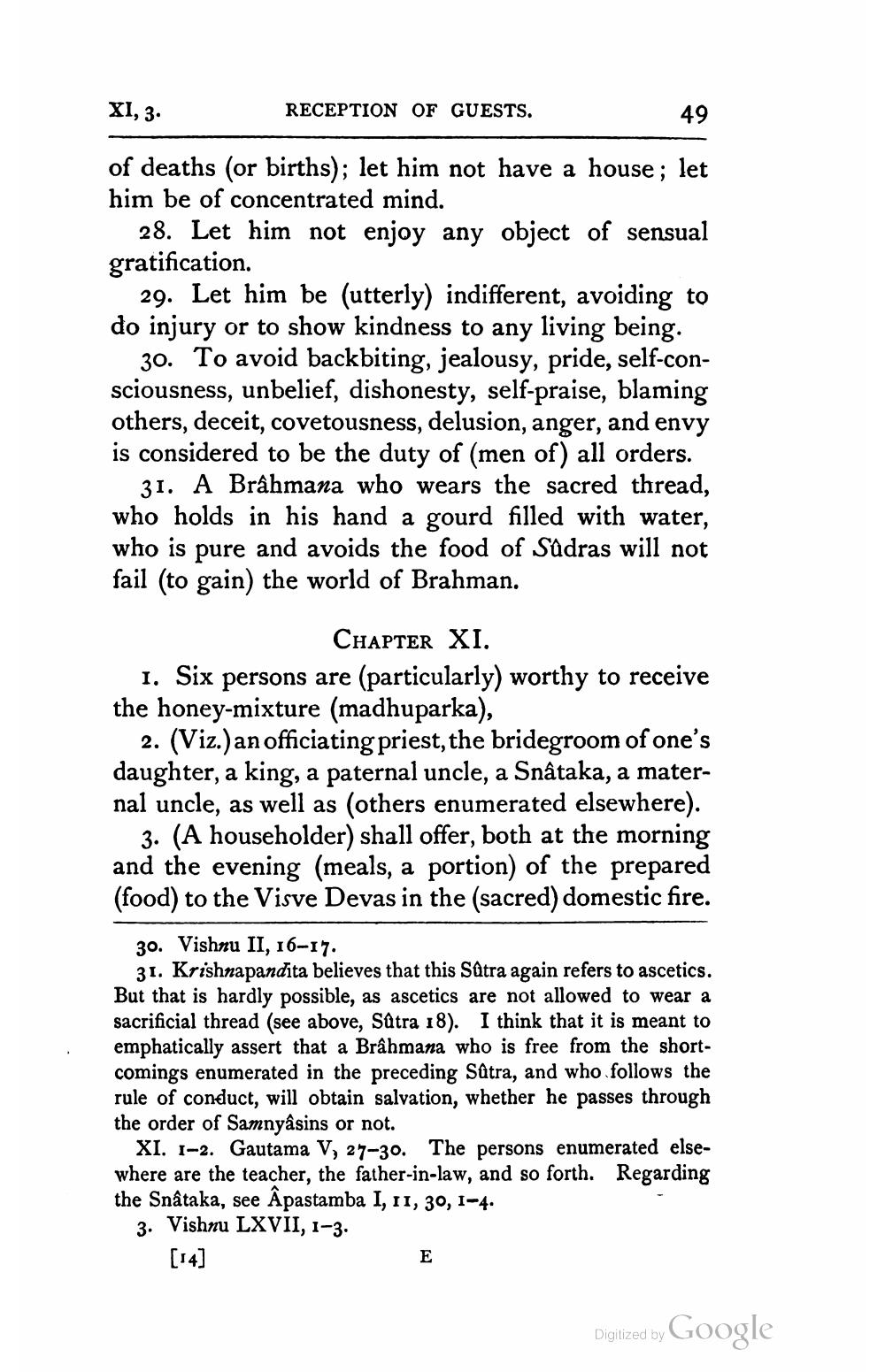________________
XI, 3.
RECEPTION OF GUESTS.
49
of deaths (or births); let him not have a house ; let him be of concentrated mind.
28. Let him not enjoy any object of sensual gratification.
29. Let him be (utterly) indifferent, avoiding to do injury or to show kindness to any living being.
30. To avoid backbiting, jealousy, pride, self-consciousness, unbelief, dishonesty, self-praise, blaming others, deceit, covetousness, delusion, anger, and envy is considered to be the duty of (men of) all orders.
31. A Brâhmana who wears the sacred thread, who holds in his hand a gourd filled with water, who is pure and avoids the food of Sudras will not fail (to gain) the world of Brahman.
CHAPTER XI. 1. Six persons are (particularly) worthy to receive the honey-mixture (madhuparka),
2. (Viz.)an officiating priest, the bridegroom of one's daughter, a king, a paternal uncle, a Snâtaka, a maternal uncle, as well as (others enumerated elsewhere).
3. (A householder) shall offer, both at the morning and the evening (meals, a portion) of the prepared (food) to the Visve Devas in the (sacred) domestic fire.
30. Vishnu II, 16-17.
31. Krishnapandita believes that this Sätra again refers to ascetics. But that is hardly possible, as ascetics are not allowed to wear a sacrificial thread (see above, Sutra 18). I think that it is meant to emphatically assert that a Brâhmana who is free from the shortcomings enumerated in the preceding Sätra, and who follows the rule of conduct, will obtain salvation, whether he passes through the order of Samnyâsins or not.
XI. 1-2. Gautama V, 27-30. The persons enumerated elsewhere are the teacher, the father-in-law, and so forth. Regarding the Snataka, see Âpastamba I, 11, 30, 1-4. 3. Vishnu LXVII, 1-3.
[14]
Digitized by Google




